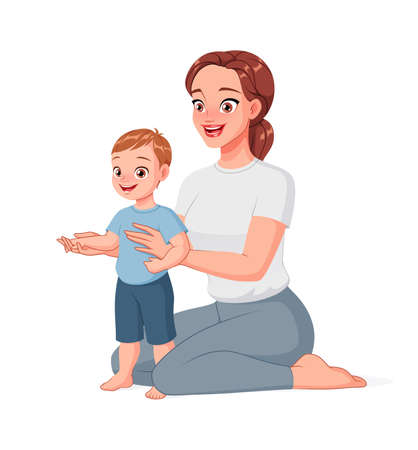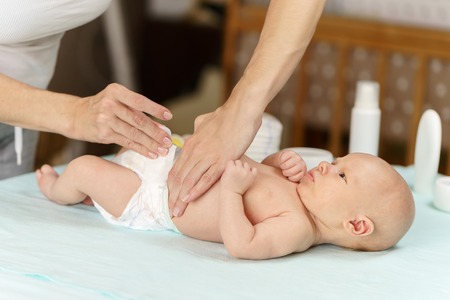1. Understanding Poop Anxiety in Toddlers
Potty training is a big milestone for toddlers, but it can also come with challenges—one of the most common being poop anxiety. Many toddlers experience fear or resistance when it comes to pooping on the potty, which can slow down their progress. Understanding why this happens is the first step in helping your child overcome it.
Why Do Toddlers Develop Poop Anxiety?
There are several reasons why a toddler might be afraid to poop during potty training. Some of the most common causes include:
| Cause | Description |
|---|---|
| Fear of Letting Go | Toddlers may feel like poop is a part of them, and letting it go into the toilet can seem scary. |
| Painful Past Experiences | If a toddler has experienced constipation or painful bowel movements before, they may associate pooping with discomfort. |
| Lack of Control | The feeling of pooping in a toilet versus a diaper is different, and some kids struggle with this change. |
| Noisy or Unfamiliar Toilets | The sound of flushing or sitting on a big toilet can be intimidating for young children. |
| Sensory Sensitivities | Certain toddlers have heightened sensory awareness and might find the act of pooping in a new environment overwhelming. |
How Poop Anxiety Affects Potty Training Progress
If a toddler develops poop anxiety, they may start holding in their bowel movements, which can lead to constipation and make the problem worse. This can create a cycle where pooping becomes even more painful, reinforcing their fear. Some kids may insist on using a diaper for pooping even after theyve mastered peeing in the potty. Others might wait until bedtime when they’re in a pull-up or hide when they need to go.
Signs That Your Toddler Has Poop Anxiety
- Your child refuses to sit on the potty for pooping but is okay with peeing.
- Your toddler hides behind furniture or goes to another room when they need to poop.
- You notice signs of stool withholding, such as crossing legs, clenching muscles, or standing stiffly.
- Your child asks for a diaper when they need to poop.
- Your toddler experiences occasional constipation due to holding in bowel movements.
The Importance of Patience and Understanding
If your toddler is struggling with poop anxiety, remember that this is completely normal. Many children go through this phase during potty training. Instead of pressuring them, focus on understanding their fears and making the process as comfortable as possible. In the next section, we’ll explore practical strategies to help your toddler feel more confident about pooping on the potty.
2. Creating a Positive and Stress-Free Environment
Potty training can feel overwhelming for toddlers, especially when it comes to pooping. Helping your child feel safe and comfortable during this process is key to overcoming poop anxiety. Here are some ways to make potty time a positive and stress-free experience.
Make the Bathroom a Welcoming Space
The bathroom should be a place where your toddler feels secure and at ease. Consider making small changes to create a more inviting environment:
| Tip | How It Helps |
|---|---|
| Add fun decorations | Let your child choose stickers or themed décor to make the bathroom feel like their own space. |
| Use soft lighting | Avoid harsh lights that may feel too intense; softer lighting creates a more calming atmosphere. |
| Keep favorite books nearby | A special potty-time book can help them relax and associate potty time with something enjoyable. |
Create a Relaxing Routine
Toddlers thrive on routine, so establishing a predictable potty schedule can help reduce anxiety. Try these strategies:
- Encourage regular bathroom breaks: Have your child sit on the potty at consistent times each day, such as after meals or before bedtime.
- Sit with them for support: Your presence can provide reassurance while they get used to the process.
- Soothe with music or stories: Singing a favorite song or telling a short story can make the experience feel comforting rather than stressful.
Avoid Pressure and Praise Progress
Pushing too hard can increase anxiety, so focus on encouragement rather than pressure. Instead of demanding results, celebrate small achievements:
- Praise effort, not just success: Acknowledge when they try, even if they don’t poop right away.
- Avoid negative reactions: Stay calm if accidents happen—reassure them that its okay and part of learning.
- Create a reward system: Stickers, high-fives, or verbal praise can help motivate without adding stress.
A relaxed and supportive approach makes all the difference. By creating an inviting environment, sticking to a gentle routine, and celebrating progress, you can help your toddler feel more confident about potty training.

3. Using Gentle Encouragement and Patience
Potty training can be a big transition for toddlers, and poop anxiety is a common hurdle. The key to helping your child overcome this fear is to provide gentle encouragement and patience. Avoid pressure or punishment, as this can make them even more resistant.
Recognizing Your Child’s Fears
Toddlers may feel scared about pooping in the toilet for various reasons. They might be afraid of the flushing sound, feel insecure without a diaper, or even think they are losing a part of themselves. Understanding these fears can help you respond with empathy.
Encouraging Without Pressure
Rather than forcing your child to sit on the potty, create a positive and stress-free environment. Here are some ways to encourage them:
| Strategy | How It Helps |
|---|---|
| Read Potty Books Together | Helps normalize the process and makes it less intimidating. |
| Praise Small Steps | Acknowledge when they sit on the potty, even if they don’t go. |
| Create a Routine | Sit on the potty at regular times to build familiarity. |
| Use Comfort Items | A favorite toy or stuffed animal can offer reassurance. |
| Avoid Negative Reactions | If accidents happen, stay calm and supportive. |
Praising Progress, Not Perfection
Your toddler may take time to fully adjust, and that’s okay! Celebrate small victories like sitting on the potty willingly or telling you when they need to go. Positive reinforcement builds confidence and makes the experience feel safe.
The Role of Patience
Your child will sense if you’re frustrated, which can make their anxiety worse. Stay patient and reassuring. Let them know that it’s okay to take their time and that you’re there to support them every step of the way.
4. Addressing Physical and Emotional Factors
Potty training can be a stressful time for toddlers, especially when they develop anxiety about pooping. Understanding the physical and emotional factors that contribute to this fear can help make the process smoother for both you and your child.
Understanding the Role of Constipation
Constipation is one of the most common reasons toddlers experience poop anxiety. If your child has had a painful bowel movement before, they may start holding it in, which only makes constipation worse. To prevent this cycle, focus on keeping their digestive system healthy.
Tips to Prevent Constipation
| Factor | What You Can Do |
|---|---|
| Hydration | Encourage your toddler to drink plenty of water throughout the day. |
| Fiber-Rich Foods | Include fruits, vegetables, whole grains, and beans in their diet. |
| Physical Activity | Let them run, jump, and play to help stimulate digestion. |
| Routine Bathroom Visits | Encourage sitting on the potty at regular times, even if they don’t need to go. |
The Importance of Diet in Poop Training
A well-balanced diet plays a key role in making bowel movements more predictable and comfortable for toddlers. Avoid too many processed foods or dairy products that could contribute to constipation.
Foods That Help with Healthy Digestion
- Pears, prunes, and apples: Natural sources of fiber that help soften stools.
- Oatmeal and whole grains: Promote regular bowel movements.
- Yogurt with probiotics: Supports gut health and digestion.
- Healthy fats like avocado: Helps keep stools soft and easy to pass.
Providing Emotional Reassurance
Toddlers can develop fears around pooping due to bad experiences or feeling pressured. Offering reassurance and creating a stress-free environment can make a big difference.
Ways to Support Your Toddler Emotionally
- Avoid Pressure: Let them take their time without forcing them to go.
- Create a Relaxing Atmosphere: Read books or sing songs while they sit on the potty.
- Praise Small Wins: Celebrate any progress, even just sitting on the potty without fear.
- Acknowledge Their Feelings: Let them know its okay to feel nervous but that their body knows what to do.
By addressing both physical and emotional factors, you can help your toddler feel more confident about using the potty and reduce their anxiety around pooping.
5. Celebrating Small Wins and Progress
Potty training can be a big challenge for toddlers, especially when they experience poop anxiety. One of the best ways to help your little one feel confident and motivated is by celebrating their small wins along the way. Positive reinforcement and small rewards can go a long way in making potty training a positive experience.
Why Positive Reinforcement Works
Toddlers thrive on encouragement and praise. When they see that their efforts are recognized, they become more willing to try again. Using positive reinforcement helps reduce stress and builds confidence, making it easier for them to overcome their fears.
Ways to Celebrate Small Wins
You don’t need extravagant rewards—simple acknowledgments can make a big difference. Here are some effective ways to celebrate your toddler’s progress:
| Celebration Method | Description |
|---|---|
| Praise and Encouragement | A simple “Great job!” or “I’m so proud of you!” can boost your childs confidence. |
| Sticker Chart | Create a chart where your child earns a sticker each time they use the potty successfully. |
| Small Treats | A special snack or an extra bedtime story can be a fun way to celebrate progress. |
| Dancing or Singing | A silly dance or a song after using the potty makes the experience fun and exciting. |
| Special Privileges | An extra 10 minutes of playtime or choosing a favorite activity can serve as motivation. |
Avoiding Pressure and Overwhelming Expectations
While celebrations are important, avoid putting too much pressure on your toddler. If they have an accident or hesitate, reassure them that it’s okay. The goal is to create a positive learning experience rather than making them feel stressed about meeting expectations.
The Power of Patience and Consistency
Your toddler will progress at their own pace, and every small step forward is worth celebrating. Stay patient, keep reinforcing their efforts with kindness, and soon enough, they’ll gain the confidence they need to succeed in potty training.


